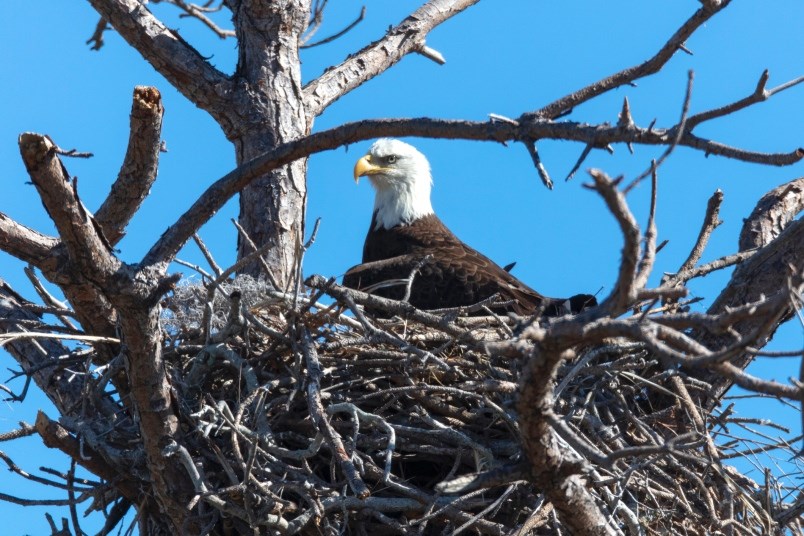The presence of an eagle’s nest doesn’t lower the value of a Richmond property, according to a recent decision by the B.C. Property Assessment Appeal Board.
Michelle Hopkins and David MacNab argued the tree containing the nest was a hazard, and that a lower assessment of their single-family dwelling – at 3600 Rosamond Ave. in the Seafair neighbourhood – was fair due to the nest.
The property is assessed at $1,124,000, split between land at $1,096,000 and improvements at $28,000, according to the June 3 decision.
The appeal was initiated and won by the property assessor for Richmond and Delta, who asked that the land value be raised to $1,566,000, for a total assessment of $1,594,000.
In her decision, panel chair Mandy Hansen said the assessment value sought by the assessor was fair and equitable, based on the market value of the property as of July 1, 2018.
The assessor provided three comparable sales of homes in the vicinity of Hopkins and MacNab’s property, with sale prices between $1.6 million and $1.7 million, in addition to time adjustment evidence to calculate market movement over time, said Hansen in her decision.
The respondents, Hopkins and MacNab, noted Hansen, did not comment on the assessor’s time adjustment process.
Meanwhile, in order to determine whether an eagle’s nest negatively impacts property values, the assessor provided two sales within Greater Vancouver, concluding that the “market does not adjust downwards for properties impacted by an eagle’s nest.”
The respondents did not counter the findings, said Hanson, adding that she agrees with the assessor on this issue.
Hopkins and MacNab provided an arborist’s report that indicated “the tree is past its natural life and should be removed,” according to the decision. “They also provide evidence of the challenges with the local community about gaining both permits and support for that removal.”
The respondents also claimed that the City of Richmond is “unwilling to provide the permits,” although they were able to meet the criteria for those permits.
“They are unable to attend to a hazard, and are fielding personal confrontations by citizens regarding the tree,” reads Hanson’s decision.
“The respondents do not, however, provide evidence in support of their opinion of market value of $1,124,000, and do not provide an estimate of the cost to remedy the situation (tree removal costs, legal services to procure permits, etc).”
Hansen ordered that the assessor amend the 2019 assessment roll to reflect the increase in land value, from $1,096,000 to $1,566,000, and that the value of improvements remain at $28,000, bringing the total new assessment to $1,594,000.
Read more from the



